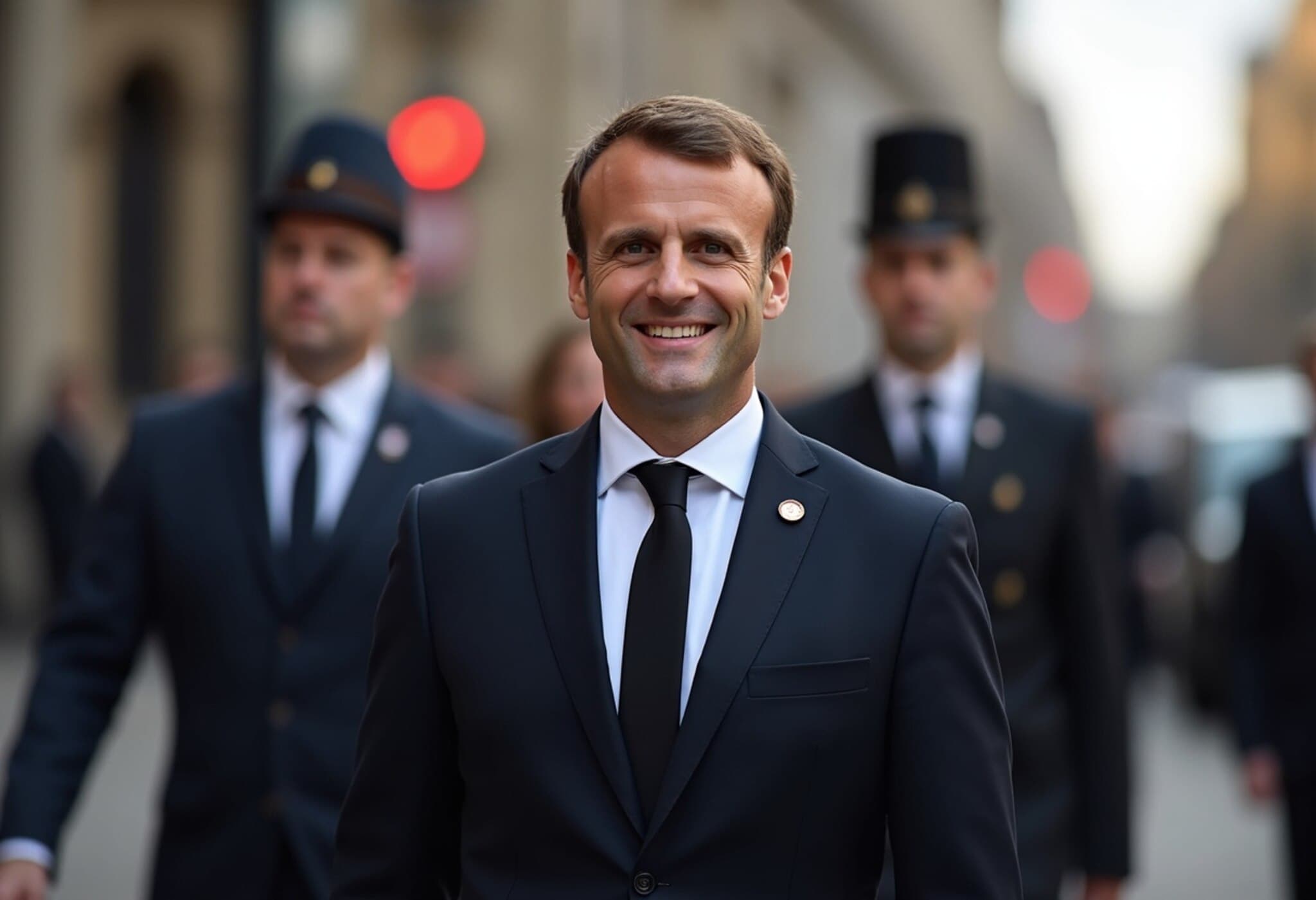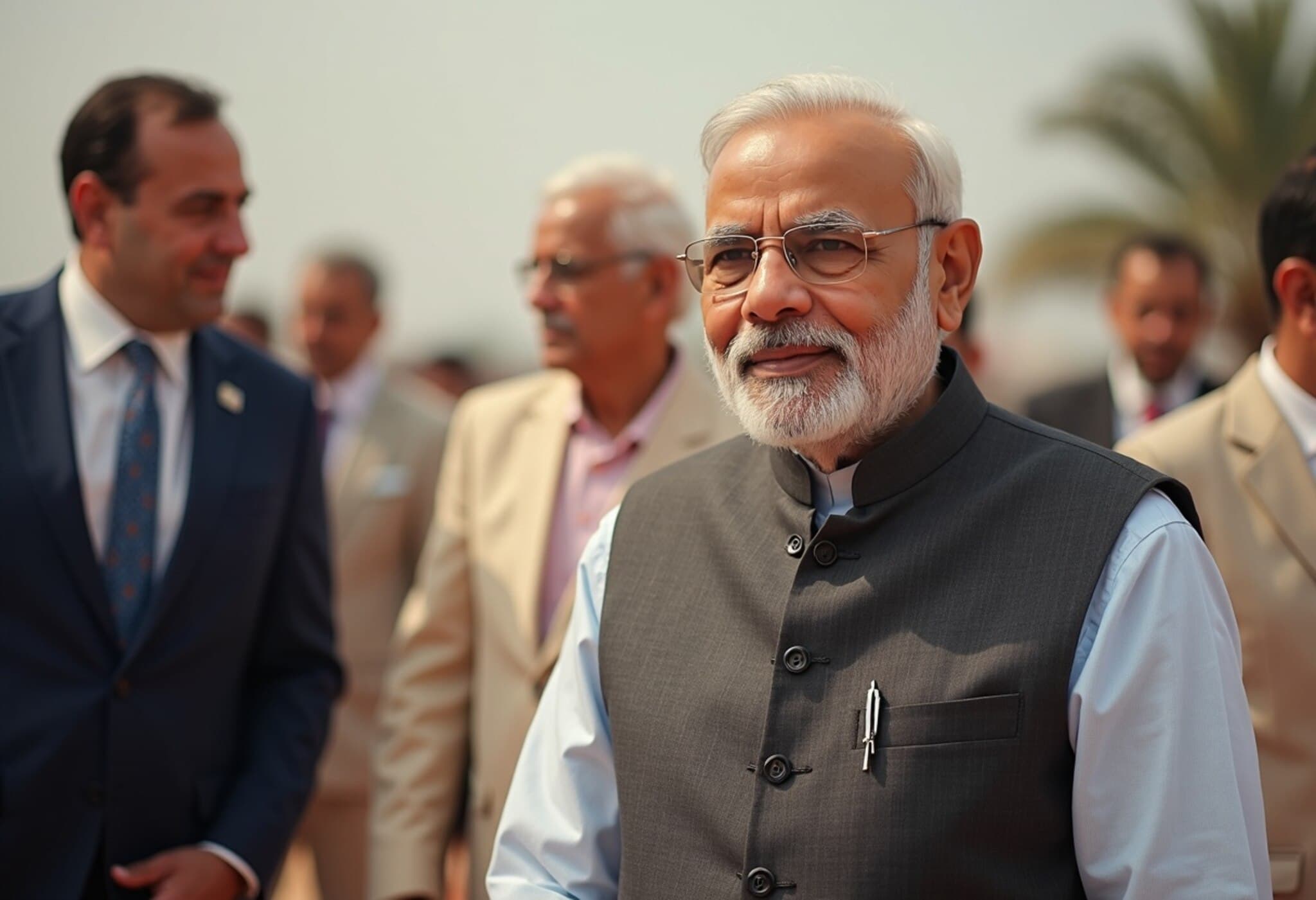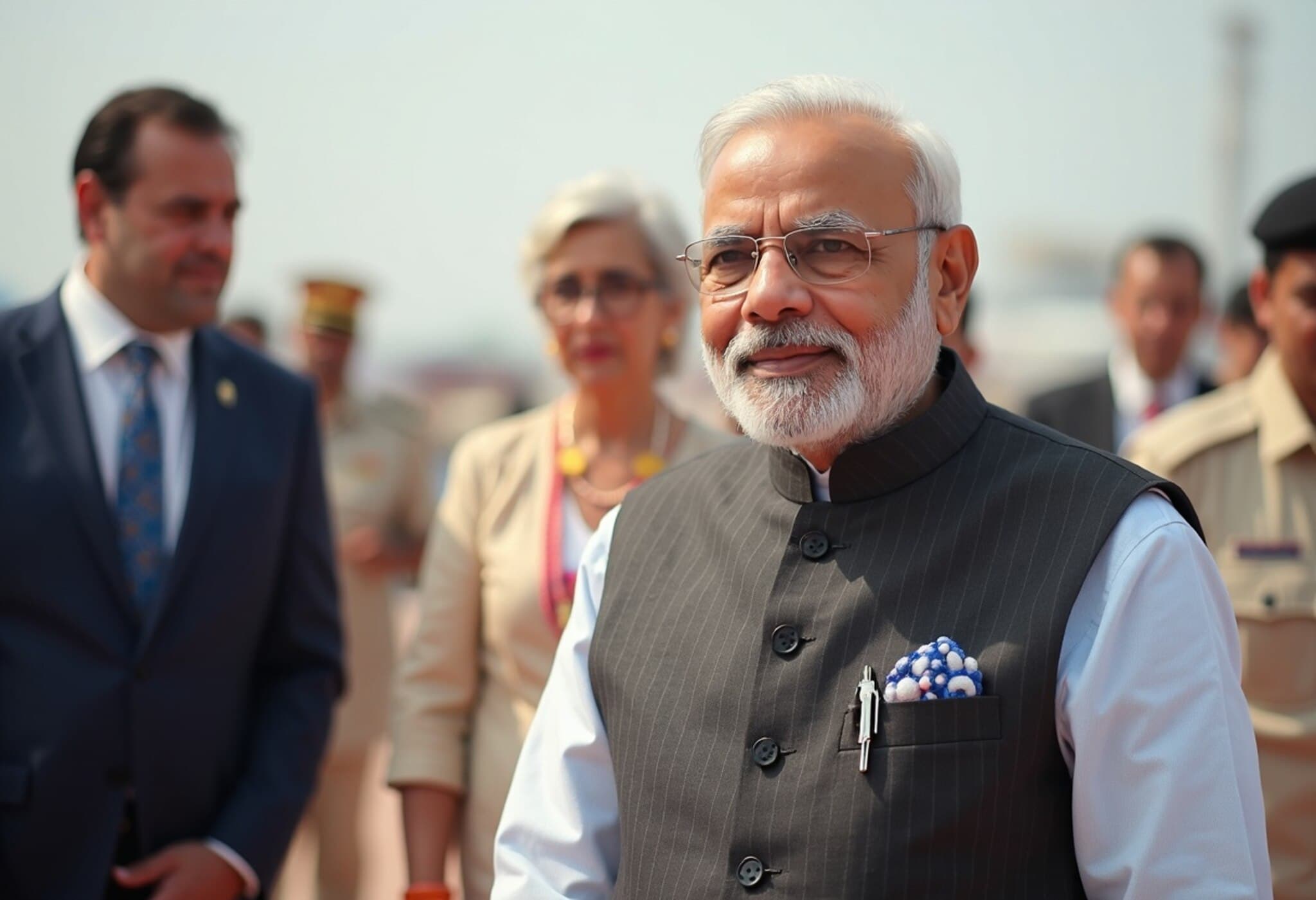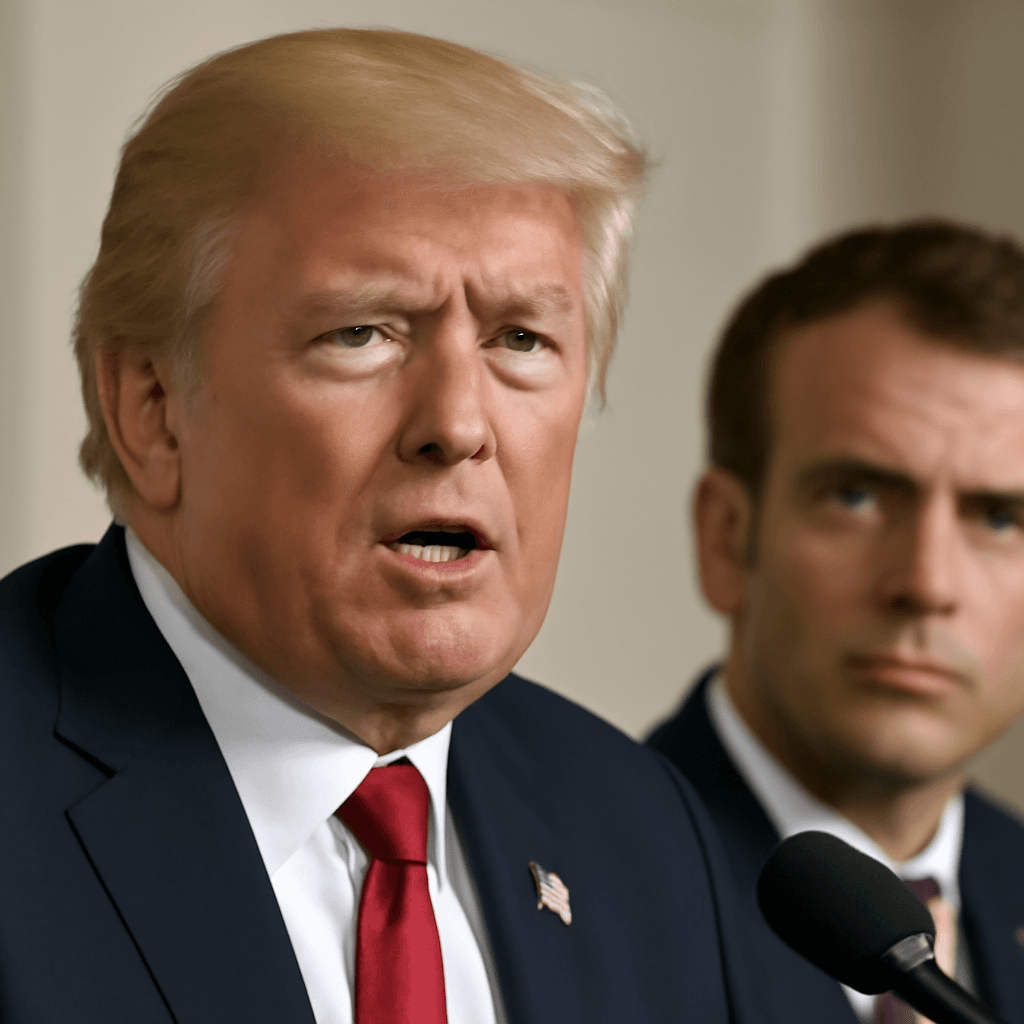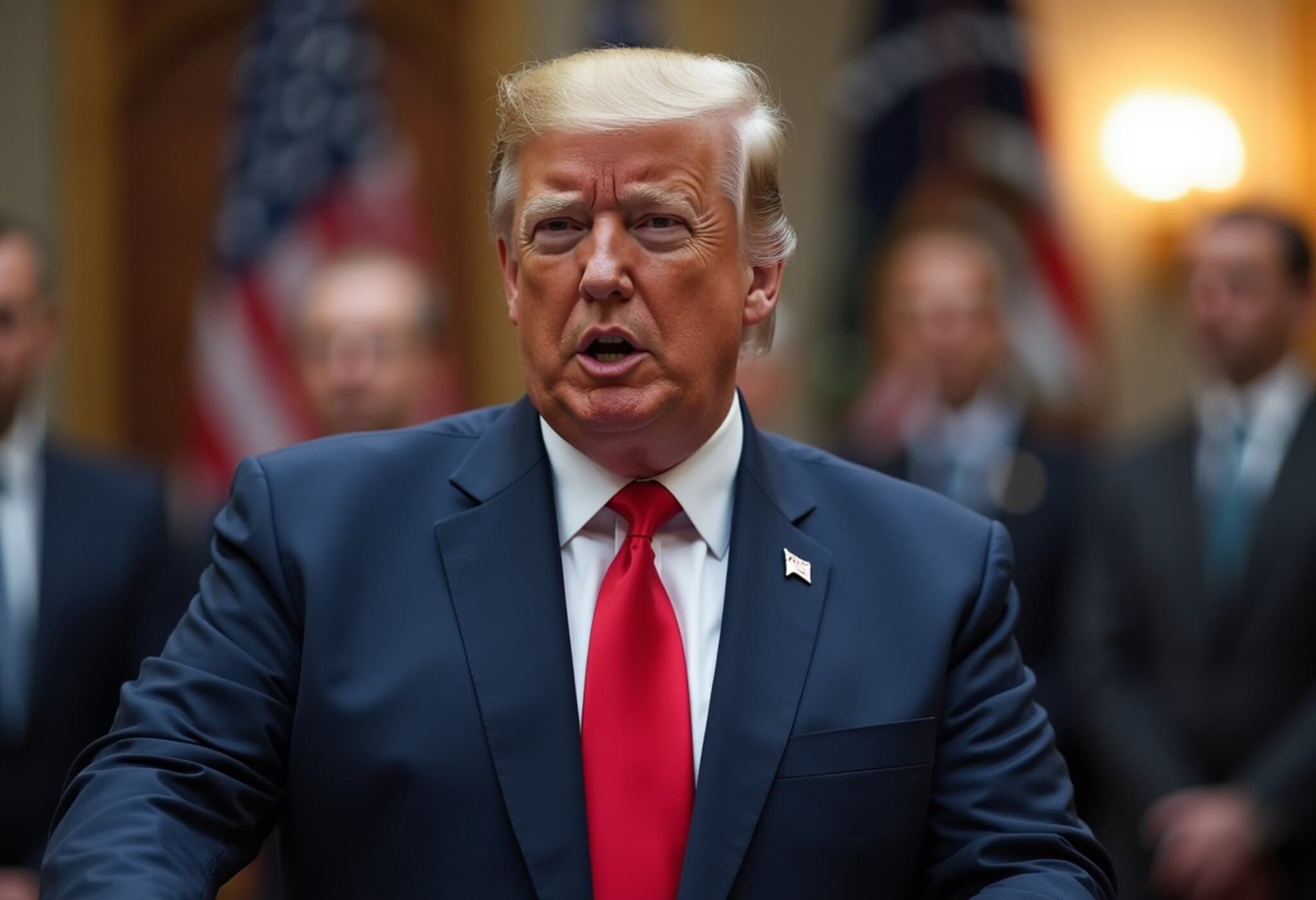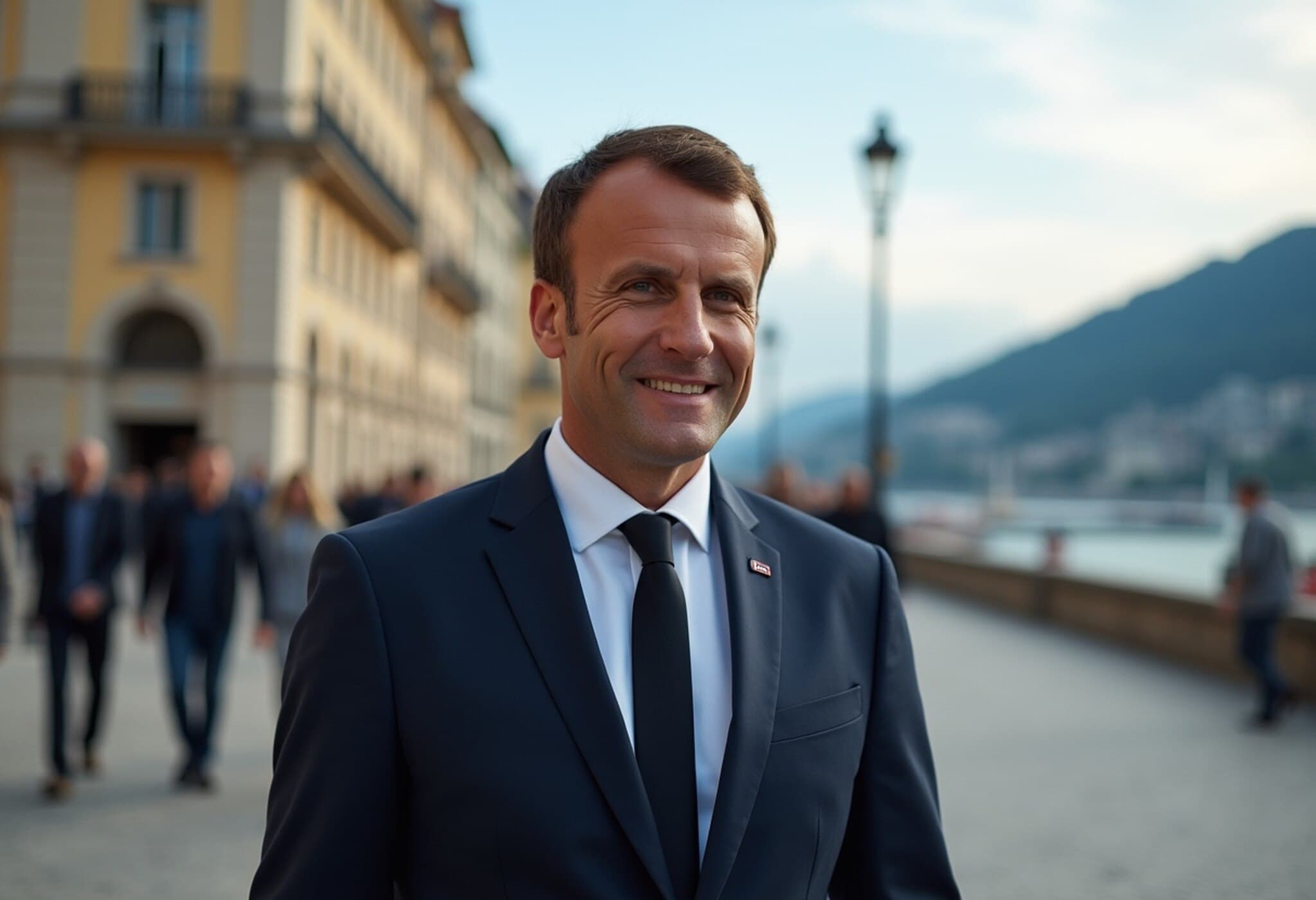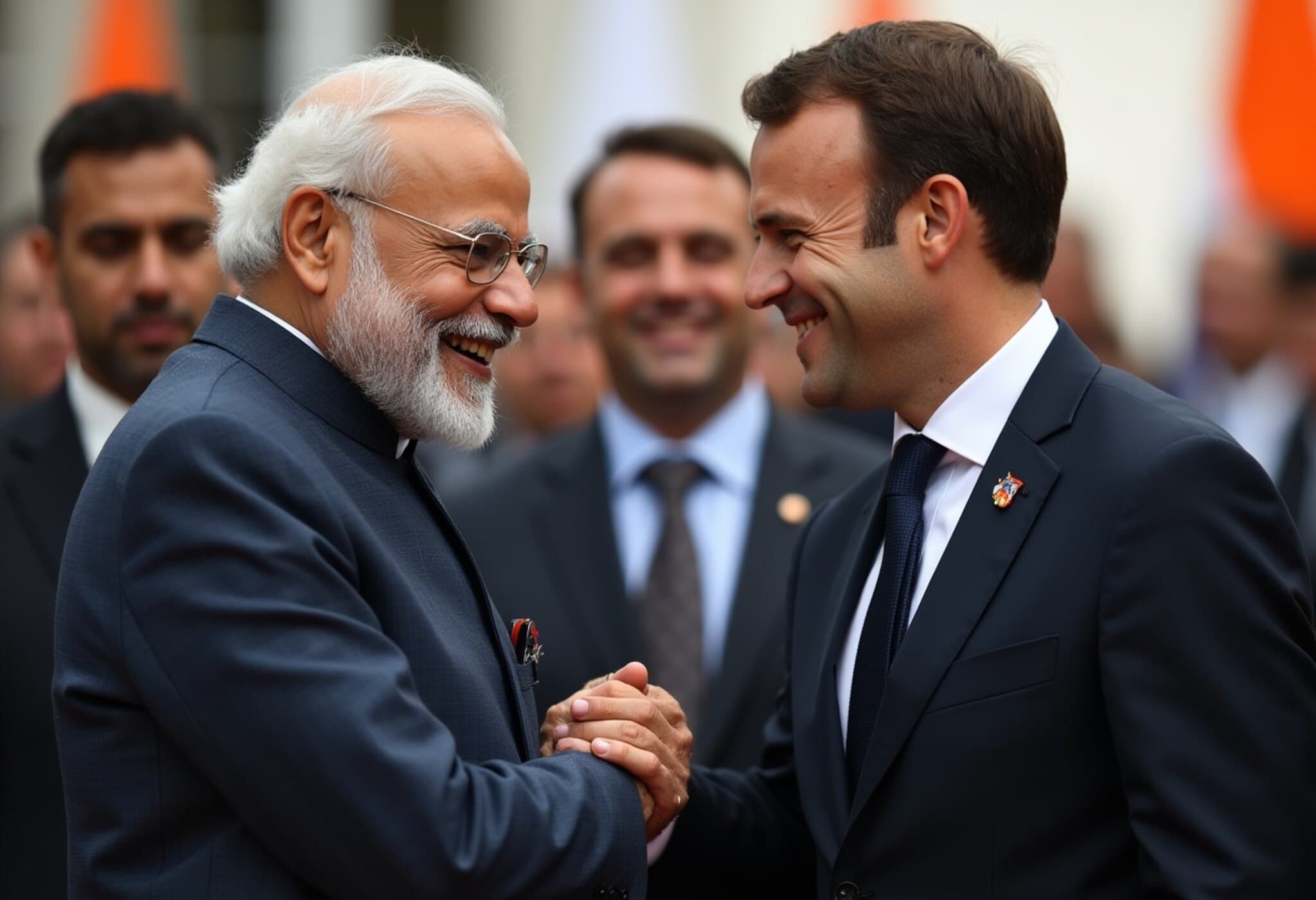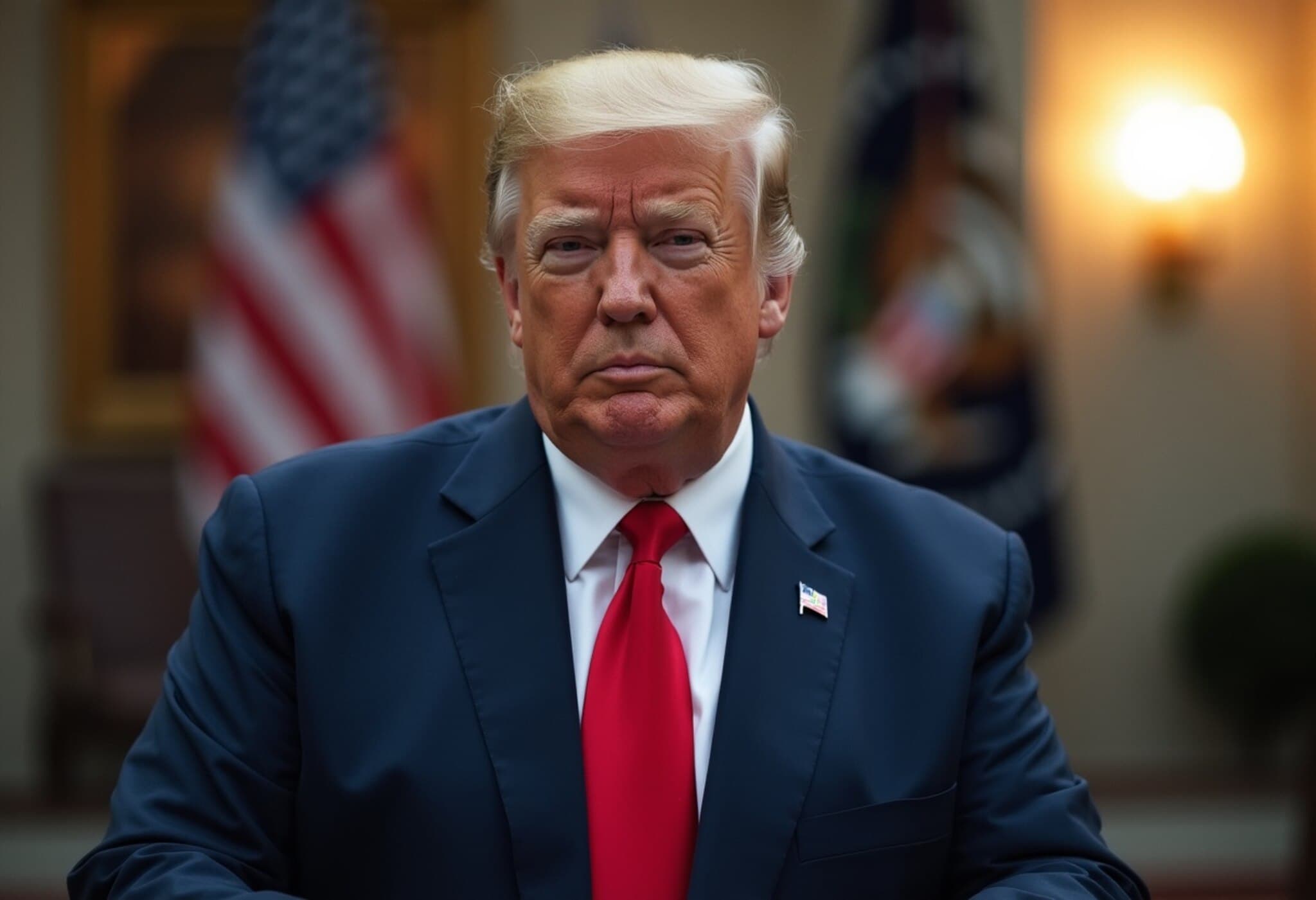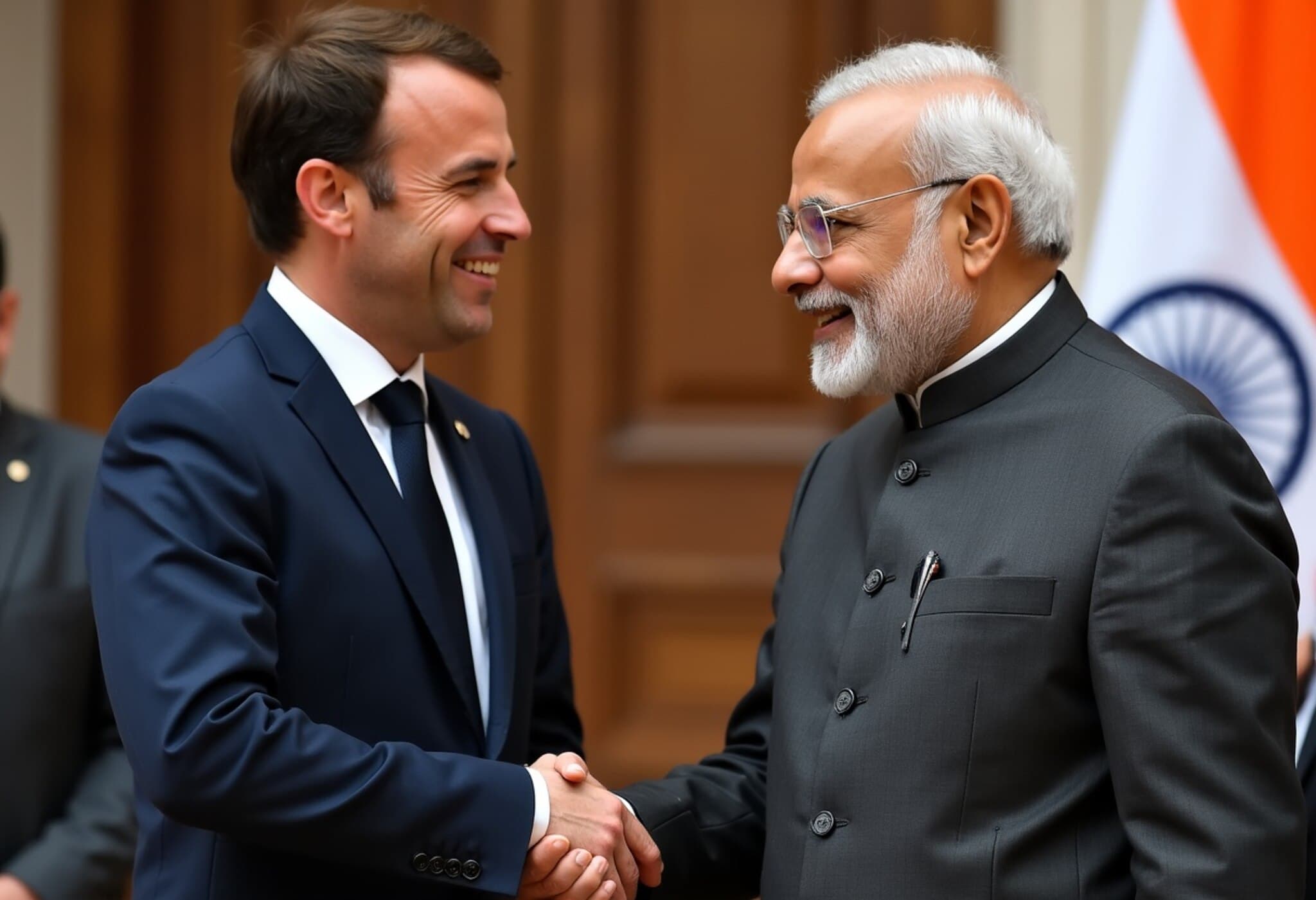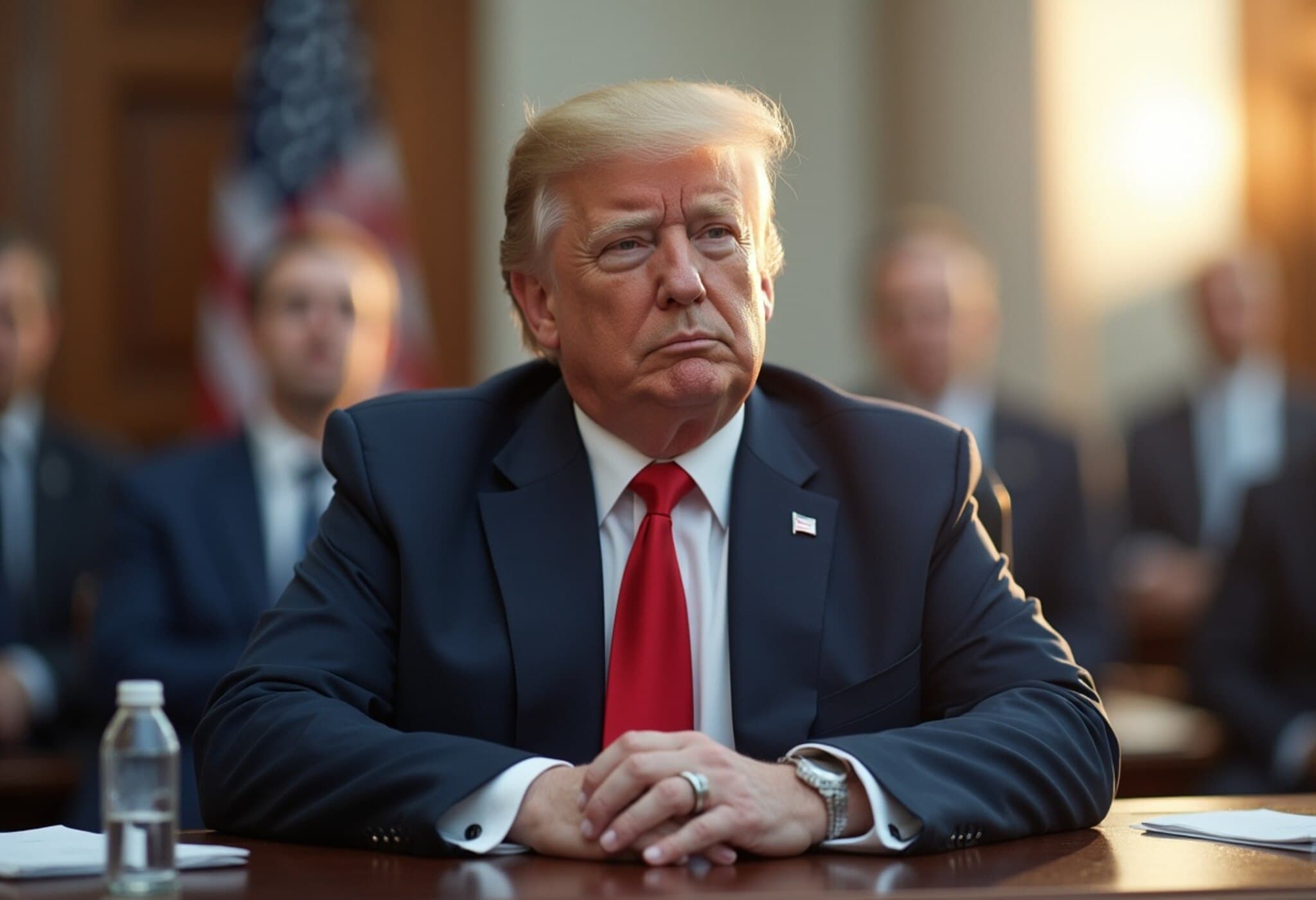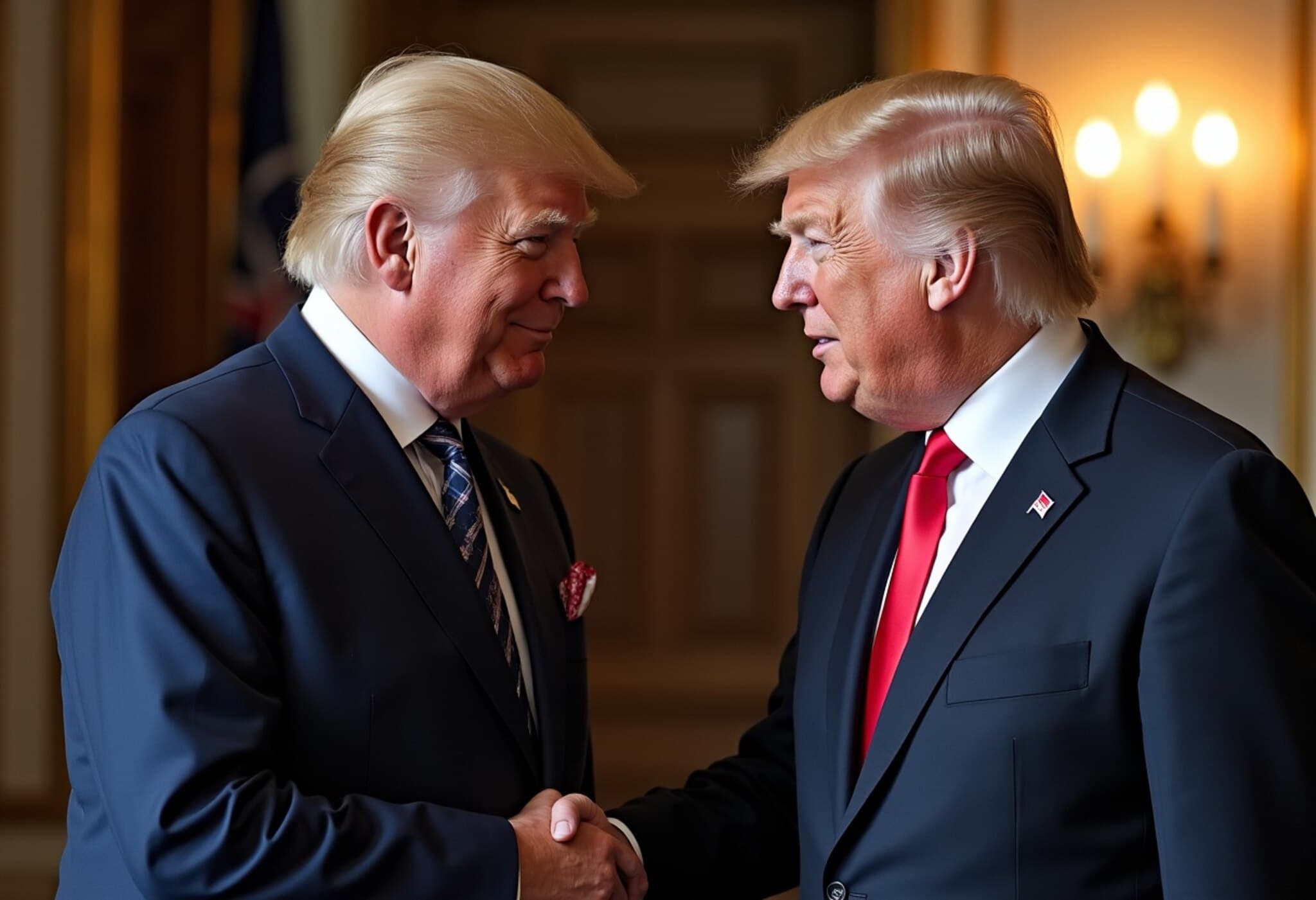Macron’s State Visit to the UK: A Blend of Tradition and Trade Challenges
As French President Emmanuel Macron embarks on a three-day state visit to the United Kingdom starting July 8, 2025, Britain is rolling out its most regal welcome. However, behind the ornate ceremonies and royal carriage processions lies a more intricate geopolitical and economic narrative. At the center of this is the unpredictable shadow cast by U.S. President Donald Trump’s tariffs policy, threatening to complicate transatlantic relations and the broader global economy.
Royal Reception Amid Historic Bonds
Upon arrival at RAF Northolt, Macron and his wife Brigitte were warmly greeted by the Prince and Princess of Wales, William and Kate, setting an amiable tone for the visit. Following the tradition of state ceremonies, the Macrons and British royals—King Charles III and Queen Camilla—shared a carriage ride to Windsor Castle, culminating in an elegant state banquet.
This marks the first state visit by an EU leader to the UK since Brexit finalized in 2020, providing a symbolic gesture of ongoing cooperation despite political upheavals. King Charles III, fluent in French, reinforced this solidarity in a recent speech: “We face a multitude of complex threats, emanating from multiple directions. As friends and as allies, we face them together.”
High-Stakes Diplomacy: From Parliament to Business
Macron’s agenda in London includes an address to British lawmakers and discussions with Prime Minister Keir Starmer. Trade, migration, defense, and security top the list of joint priorities, highlighting the strategic importance of Franco-British relations amid global uncertainties.
Starmer, who has cultivated an unexpectedly pragmatic rapport with Trump, may play a pivotal role in navigating transatlantic ties, offering Macron insights on dealing with the American president’s mercurial approach. Their conversations are expected to focus significantly on trade negotiations strained by U.S. tariff threats.
Trump’s Tariffs: A Persistent Cloud Over Trade Talks
The specter looming largest over Macron’s visit is the unpredictable tariff regime crafted by President Trump. Recently, Trump extended a deadline initially set for July 9 to impose higher tariffs on imports from 14 countries—including major economies like Japan and South Korea—while Europe remains tentatively exempt but on alert.
White House spokesperson Karoline Leavitt has indicated that further tariff notices could be imminent, keeping the European Union on edge despite the EU not receiving a formal letter yet.
Transatlantic Trade at a Crossroads
The potential U.S.-EU trade deal, rumored to possibly finalize this week, carries significant weight but remains unpredictable in its implications. As Holger Schmieding, chief economist at Berenberg Bank, observed, “Major stumbling blocks remain,” with the EU reluctantly accepting that some level of 10% base tariffs is unavoidable.
- The EU is hoping for exemptions on crucial sectors such as aircraft, but the U.S. threatens higher tariffs.
- The negotiations underscore the fragility and complexity of post-Brexit European trade dynamics.
- The outcome will influence not only economic growth in Europe but reshape global trade flows.
Macron’s diplomatic challenge is to balance asserting European economic interests while maintaining constructive relations with both the U.K. and the U.S., amid these shifting geopolitical currents.
Beyond the Headlines: Deeper Considerations
While much attention focuses on tariffs and diplomatic pageantry, there are underreported dimensions worth noting:
- Economic Sovereignty vs. Globalization: Macron’s visit underscores ongoing tensions between protecting national industries and embracing global trade networks, a debate central to post-Brexit UK and Eurozone economies.
- The Role of Leadership Styles: Contrasting Macron’s diplomatic finesse with Trump’s confrontational tactics offers insights into how different leadership approaches shape international negotiations.
- Security Alliances in Flux: Joint discussions on defense hint at evolving European and transatlantic security commitments amid global conflicts and rising geopolitical threats, which often get overshadowed by economic headlines.
Editor’s Note
President Emmanuel Macron’s state visit to the UK is more than a ceremonial occasion; it’s a critical juncture where tradition meets turbulent geopolitics. As global trade tensions rise, particularly under the shadow of Trump’s unpredictable tariffs, the visit highlights the delicate balancing act European leaders must manage between diplomacy, economic interests, and strategic alliances. Observers should watch closely how bilateral and transatlantic relations evolve, as outcomes here are likely to ripple far beyond London’s historic streets.

